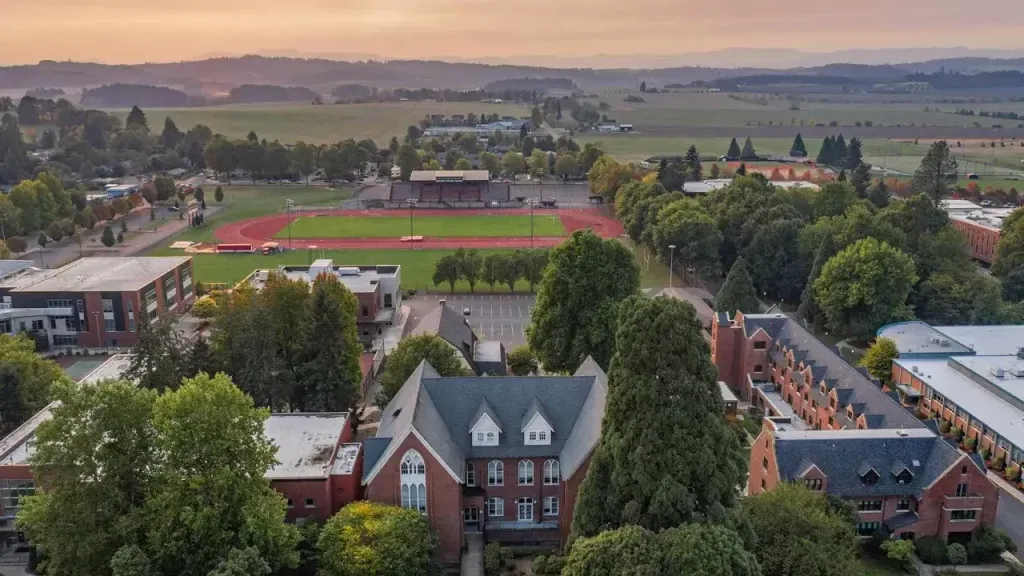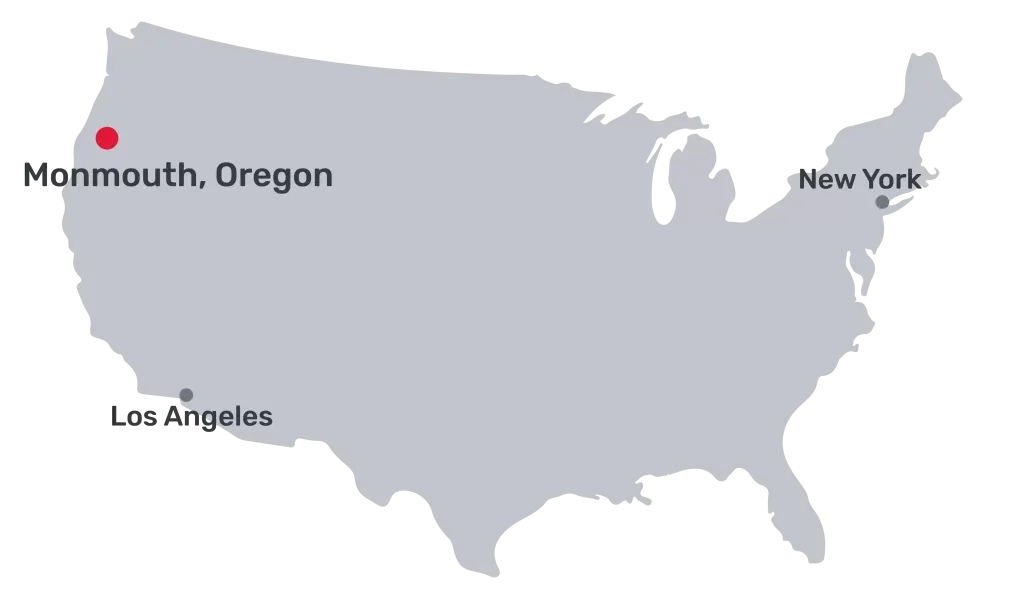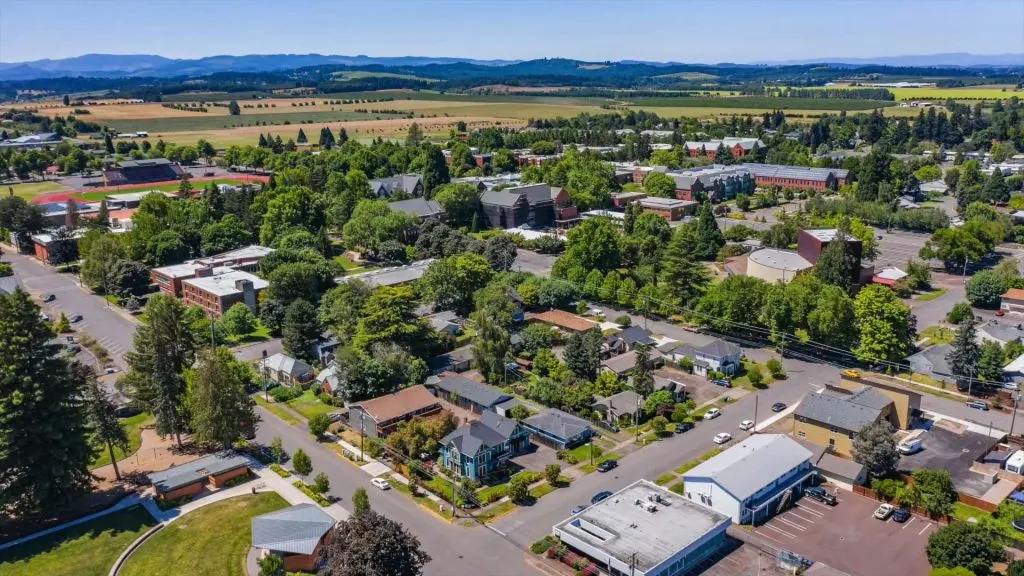Oregon, a state celebrated for its majestic natural beauty from the Pacific coastline to snow-capped volcanoes, harbors a lesser-known treasure: its stunning night skies. Far from city lights, Oregon’s wilderness areas reveal a magical universe where millions of stars shimmer against a deep black backdrop. If you are an astronomy enthusiast, a night sky photographer, or simply seeking tranquility under the stars, Oregon is undoubtedly an ideal destination.
Why Oregon is a Stargazing Paradise
Oregon boasts numerous natural elements that create perfect conditions for observing the night sky.
Diverse Terrain and Low Light Pollution
With its vast area and sparsely populated regions, especially in Eastern and Southern Oregon, the state offers expansive wilderness areas. These locations are far from major cities like Portland or Eugene, minimizing light pollution. Artificial light from urban areas is the number one enemy of night sky enthusiasts, as it obscures the faint light of stars and other celestial bodies. In Oregon, you can easily find locations far from artificial light sources, where the night sky appears clearest and most brilliant.
Dry and Clear Climate
Most of Oregon has a mild Mediterranean climate, with dry summers and wet winters. Eastern Oregon, in particular, has a semi-arid climate with a high number of sunny days and low humidity. This creates ideal conditions for night sky observation, as clear skies and clean air enhance visibility. Summer and autumn nights in Oregon are often clear and cloudless, making them perfect times for camping and stargazing.
Extensive Natural Conservation Areas
Oregon prides itself on its numerous natural conservation areas, including national parks, national forests, and wilderness areas. These areas not only protect diverse ecosystems but also maintain a naturally dark environment, ideal for stargazing. National parks like Crater Lake and John Day Fossil Beds, and national forests like Deschutes or Fremont-Winema are all excellent destinations for those seeking to explore the beauty of Oregon’s night sky.

Best Night Sky Viewing Areas in Oregon
Here are some renowned and highly-rated areas for night sky quality in Oregon:
Crater Lake National Park
Crater Lake is not only famous for its deep blue lake nestled in a volcanic caldera but also as one of the premier stargazing locations in Oregon. With its high elevation, thin air, and remote location, Crater Lake offers a near-perfect night sky. The park has been recognized as an International Dark Sky Park by the International Dark-Sky Association (IDA), a testament to its exceptional night sky quality. You can easily find many stunning viewing points along Rim Village or participate in ranger-led stargazing programs offered during the summer.
Deschutes National Forest
Deschutes National Forest spans a vast area in Central Oregon, encompassing numerous wilderness areas and high mountain regions. With diverse terrain ranging from pine forests to volcanoes and lakes, Deschutes offers many options for stargazing. The Cascade Lakes Scenic Byway, with its string of beautiful lakes reflecting the night sky, is a particularly appealing destination. Additionally, the Three Sisters Wilderness area is an excellent choice for those who enjoy camping and stargazing in pristine nature.
John Day Fossil Beds National Monument and Preserve
Located in Eastern Oregon, John Day Fossil Beds is a unique area with semi-desert landscapes and ancient fossil deposits. This region is sparsely populated with minimal light pollution, providing a dark and star-filled night sky. Sheep Rock Unit and Painted Hills Unit are popular stargazing spots within the area. You can combine daytime fossil exploration with nighttime enjoyment of the beautiful starry sky.
Steens Mountain Area
Steens Mountain is a distinctive high plateau mountain in southeastern Oregon, with a summit exceeding 9,000 feet (approximately 2,700 meters). This area is remote and sparsely inhabited, offering one of the darkest night skies in North America. The Steens Mountain Cooperative Management and Protection Area (CMPA) is a large area managed to preserve natural values, including the night sky. Frenchglen and Fields Station are small towns near Steens Mountain, providing basic services for visitors.
Fremont-Winema National Forest
Fremont-Winema National Forest is located in South-Central Oregon, featuring numerous lakes, volcanoes, and pine forests. The area’s high elevation and low light pollution create excellent conditions for stargazing. Summer Lake and the Sycan Marsh area are notable destinations within this national forest. You can camp by the lake, hike during the day, and stargaze at night.

Tips for Finding and Enjoying Oregon’s Night Sky
To have a wonderful stargazing experience in Oregon, keep the following in mind:
Check the Weather Forecast and Moon Phase
Weather is the most crucial factor affecting night sky quality. Check the forecast before you go and choose clear, cloudless nights. The moon phase also impacts sky darkness. A full moon will reduce the contrast of stars, so moonless or new moon nights are the best times for stargazing. You can use weather apps or websites and lunar calendars to plan your trip.
Find a Dark and Safe Location
Choose locations far from urban areas and artificial light sources. National parks, national forests, and wilderness areas are often good choices. Ensure the location you choose is safe, accessible, and has open space for sky viewing. If you are stargazing at night, go with friends or family and bring a flashlight or headlamp for safe navigation.
Prepare Necessary Equipment
To fully enjoy the beauty of the night sky, you should prepare some basic equipment. Binoculars or a telescope will help you observe celestial objects more clearly. Star charts or astronomy apps on your smartphone will help you identify constellations and planets. A folding chair or blanket will make stargazing more comfortable for extended periods. Don’t forget to bring warm clothing, snacks, and water, especially if you are stargazing in winter or in high-altitude areas.
Respect Nature and the Environment
When visiting natural areas for stargazing, always respect nature and the environment. Do not litter, make loud noises, or disturb wildlife. If you are camping, follow area regulations and fully extinguish campfires before leaving. Remember that you are visiting the home of many wild plants and animals, so act responsibly and protect Oregon’s natural beauty for future generations.

Conclusion
Oregon is not only a popular tourist destination for its stunning daytime scenery but also a paradise for night sky enthusiasts. From the clear blue waters of Crater Lake to the majestic peaks of Steens Mountain, Oregon offers countless opportunities to explore the wondrous beauty of the universe. Plan your stargazing trip to Oregon today and experience the tranquility, mystery, and awe under its star-filled night sky. Surely, your stargazing moments in Oregon will become unforgettable memories in your journey of world exploration.